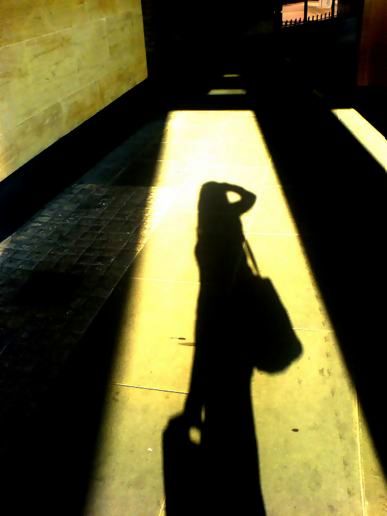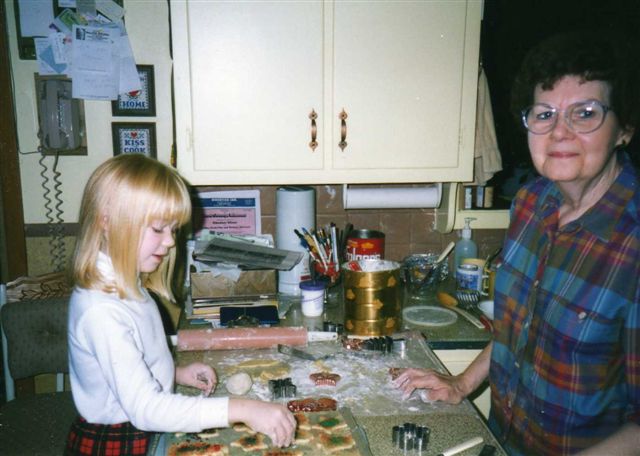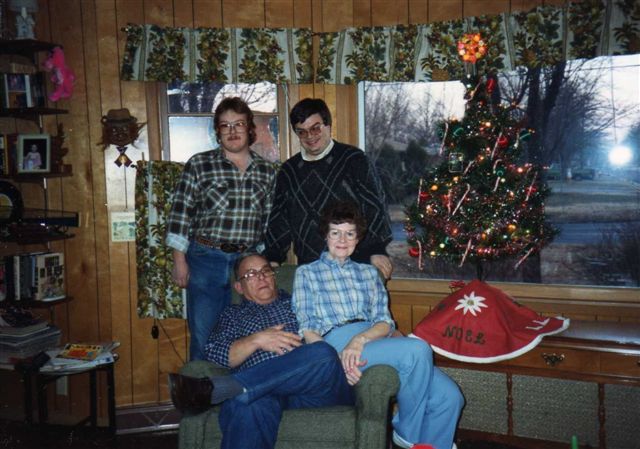“My characters tell me so much and no more, with reference to their experience, their aspirations, their motives, their history. Between my lack of biographical data about them and the ambiguity of what they say lies a territory which is not only worthy of exploration but which it is compulsory to explore.”
Harold Pinter, “Writing for the Theatre”
Archives for 2012
TT: Lookback
 From 2004:
From 2004:
I know of very few American men of affairs (to exhume a wonderfully musty old phrase) who have much of anything to do with art other than as collectors, in which capacity they not infrequently develop considerable sophistication over time. But ask them to talk about the art they own and they have a way of coming up short. This doesn’t necessarily mean they get no aesthetic pleasure out of their art–intellectuals have a nasty habit of regarding verbal dexterity as a virtue, invariably to their cost–but it does make you wonder….
Read the whole thing here.
TT: Almanac
“Communication is too alarming. To enter into someone else’s life is too frightening. To disclose the poverty within us is too fearsome a possibility.”
Harold Pinter, “Writing for the Theatre”
TT: What child is this?
Most of us outlive our parents, and once we do, the winter holidays become, among many other things, a reminder of what we’ve lost. Perhaps those who had unhappy childhoods feel differently, but when I was a boy, the holidays were always a time of shadowless delight. Throughout my youth and long past it, my mother’s family, which was both large and close, gathered at my grandmother’s house to celebrate Thanksgiving and Christmas Eve at groaning tables full of savory goodies. Now those days are gone.
 I wrote at length about my family’s holiday rituals in “My Mother’s People,” a chapter of the memoir of my childhood and youth that I published in 1991, back when those rituals were still very much a thing of the present:
I wrote at length about my family’s holiday rituals in “My Mother’s People,” a chapter of the memoir of my childhood and youth that I published in 1991, back when those rituals were still very much a thing of the present:
Not long after Thanksgiving, my mother would spend the better part of a Saturday afternoon making Christmas cookies and filling two round aluminum tins with dark brown squares of homemade chocolate fudge so rich that we were allowed to eat only one piece at a sitting. David and I cut the sticky cookie dough into stars and bells and silhouettes of Santa Claus and lovingly laid each piece on a greased cookie sheet. The Santa Claus cookies were special, for I took Santa Claus seriously. I left him a glass of milk and a plate of Christmas cookies before going to bed on Christmas Eve, and they were gone by sunup….
Long after my brother and I had grown up, my mother kept on making fudge and baking cookies in November, assisted not by us but by my niece Lauren, and each year we ate them with a pleasure that had at least as much to do with the memories that they embodied as with the way that they tasted. She did so for as long as she possibly could, but the time finally came when she grew too feeble to cook anything more ambitious than a TV dinner, and last winter she spent the holidays in a nursing home, sick unto death and longing for the merciful deliverance that finally came to her in the spring. Though the rest of us opened presents at home that Christmas morning, we were doing nothing more than going through the motions of what had previously been a vibrant, blessed occasion.
Now I’m on my own, and Mrs. T and I went to Connecticut last week to eat Thanksgiving dinner with the members of her family, to whom I’ve become comfortingly close. It was, I’m happy to say, a glorious day, festive and celebratory. We’ll be with them again on Christmas, and we’ll put up our own Christmas tree in Connecticut for the first time in far too many years. After my mother’s health began to deteriorate, we made a special point of flying out to Smalltown, U.S.A., to spend each Christmas with her, and so we gave up having our own trees until now.
 It will, of course, be truly wonderful to raise a tree in our own living room this year, for it will serve as a glittering symbol of the strong and enduring joy that Mrs. T and I, against all odds, have found in one another in the middle of our lives. We have much to be thankful for, and we know it. But as we trim the tree, I have little doubt that I’ll also be thinking of a parade of Christmases long past, and that I’ll hear Dave Frishberg’s “The Difficult Season” in my mind’s ear:
It will, of course, be truly wonderful to raise a tree in our own living room this year, for it will serve as a glittering symbol of the strong and enduring joy that Mrs. T and I, against all odds, have found in one another in the middle of our lives. We have much to be thankful for, and we know it. But as we trim the tree, I have little doubt that I’ll also be thinking of a parade of Christmases long past, and that I’ll hear Dave Frishberg’s “The Difficult Season” in my mind’s ear:
The difficult season
Can bring us to tears too much,
Touching on feelings and fears
Too tender to ever touch.
The tinsel, the reindeer, the chimney, the sleigh
Are the innocent dreams of an innocent day.
We hark to the carols meek and mild,
Awaking the memories of yesterday’s child.
TT: Satchmo on the air
John Douglas Thompson and I figure prominently in a well-produced ten-minute audio profile of Louis Armstrong that aired over the weekend on WRTI, Philadelphia’s classical and jazz radio station. The occasion was the Wilma Theater run of Satchmo at the Waldorf, which runs in Philly through Sunday. To listen to the piece, go here.
In case you didn’t see “Writing Satchmo at the Waldorf,” last week’s Wall Street Journal online video feature, here it is:
TT: Just because
An excerpt from the 1978 TV version of Harold Pinter’s No Man’s Land, starring John Gielgud and Ralph Richardson:
(This is the latest in a series of arts-related videos that appear in this space each Monday and Wednesday.)
TT: Almanac
“The speech we hear is an indication of that which we don’t hear. It is a necessary avoidance, a violent, sly, and anguished or mocking smoke screen which keeps the other in its true place.”
Harold Pinter, “Writing for the Theatre”
KID STUFF AT THE CLARK ART INSTITUTE
“Most Americans take it for granted, as well they should, that in a democracy, the experience of going to an art museum should be made more widely accessible. But any museum that starts down the twisty road of cultural democratization can lose sight of its overarching mission…”
